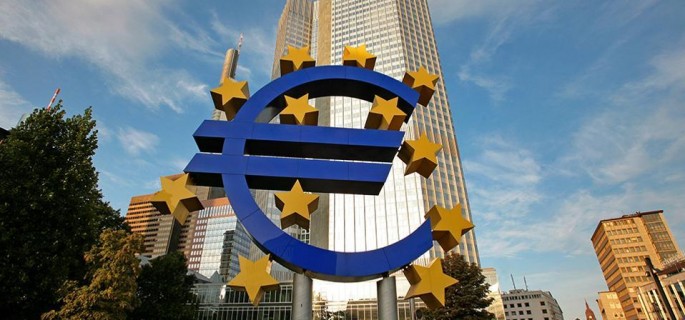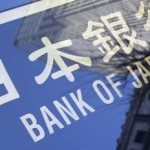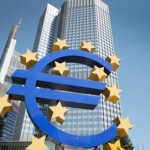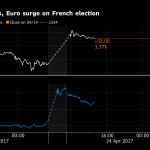ECB might deliver more QE but Fitch’s top economist says ‘don’t bother’

Expectations for further quantitative easing at upcoming European Central Bank and Bank of Japan meetings may be running high, but chances are central bankers will be wasting their time with fresh measures, analysts warned.
Brian Coulton, chief economist at Fitch Ratings, said the gap was narrowing between the marginal benefits of central banks further expanding their balance sheets by buying more assets and the unintended negative consequences.
“Quantitative easing has some downside effects for the profitability of banks,” Coulton said on Tuesday at Fitch’s Global Sovereign Conference in Singapore. “It may not spur bank lending as strongly as you would expect.”
Additionally, quantitative easing was distorting markets, he said, noting that the BOJ already owned 35 percent of the Japanese government bond market, making the price discovery process ineffective.
Some analysts expected the ECB to increase its bond-buying program at its meeting on Thursday; the current program called for purchasing a total of 1.7 trillion euro worth of assets through March 2017.
The BOJ was also widely expected to ease further at its meeting on September 20-21, although analysts varied widely in their predictionson whether Japan’s central bank would increase asset purchases or cut rates further into negative territory.
But despite all the easing, the global recovery has been “pretty sub-par,” Coulton noted, pointing toward rising wealth inequality. In the U.S., the share of income that’s gone to the owners of capital has surged compared with the share going to the workforce, he noted.
“U.S. corporates have been seeing an increasing cash surplus, they’ve been getting an increasing share of the income that’s been generated by the economy, but they’ve not been recycling that into capex,” he said.
“It’s been going into dividend payments, going into equity buybacks, mergers and acquisitions, doing up bank deposits, things that don’t actually add very much to U.S. domestic demand. That may have something to do with why central bank easing is not necessarily at the margin having such a strong effect.”
That’s a pattern repeated across developed markets, he noted.
“There is definitely a concern here at the margin that we shouldn’t really be looking to the central banks to help us get over the final hurdle of pushing growth back up,” Coulton said. “That’s something that the official debate on macro policy is reflecting now. We are seeing an increasing shift toward focus on fiscal policy.”
Coulton wasn’t alone in pointing to the declining effectiveness of monetary easing.
In a note this week, Hans Lorenzen, a credit strategist at Citigroup, said that quantitative easing had become “too much of a good thing,” and was crowding investors out of assets. When it came to markets, “every twist and turn now hangs on a central banker’s words,” he said. He added that low yields across markets had pushed companies to try to top up pension deficits rather than invest in capital expenditure.
Additionally, Lorenzen noted that with yields low, banks would rather shrink their balance sheets than lend to the real economy, as the cost of equity could be greater than the return on equity.
“Please stop buying (so many) bonds, Mr. Central Banker,” he said in the note, adding that it was unlikely quantitative easing alone would ever rekindle investment appetite. “The damage caused to the system isn’t worth the benefit.”
That doesn’t mean quantitative easing has never been effective.
Fitch’s Coulton noted that when the unorthodox measure was launched in 2008, central bankers were worried about potential deflation causing the cost of debt servicing to surge, spurring banks to cut off access to credit and leading to a contraction of the financial system, similar to the Great Depression of the 1930s. Central banks successfully averted that scenario, he noted.
“Because of that success, expectations have gotten a little bit carried away as to how successful central banks could be in the more nuanced fine-tuning that they’re trying to do,” he said. “We’re in a more mature position in the cycle, we’ve had the recovery, we’ve avoided the deep recession.”
Source: CNBC





























